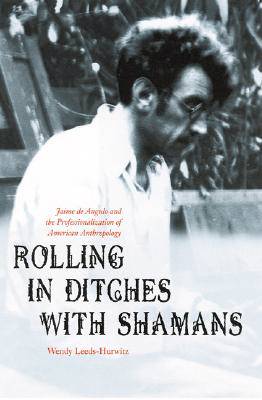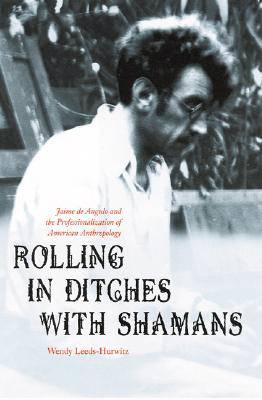
- Afhalen na 1 uur in een winkel met voorraad
- Gratis thuislevering in België vanaf € 30
- Ruim aanbod met 7 miljoen producten
- Afhalen na 1 uur in een winkel met voorraad
- Gratis thuislevering in België vanaf € 30
- Ruim aanbod met 7 miljoen producten
Zoeken
Rolling in Ditches with Shamans
Jaime de Angulo and the Professionalization of American Anthropology
Wendy Leeds-Hurwitz
€ 91,95
+ 183 punten
Omschrijving
Rolling in Ditches with Shamans charts American anthropology in the 1920s through the life and work of one of the amateur scholars of the time, Jaime de Angulo (1887-1950). Although he earned a medical degree, de Angulo chose to live on an isolated ranch in Big Sur, California, where he participated fully in the lives of the people who were his ethnographic informants. The period of his most extensive research coincides almost perfectly with the professionalization of anthropology, and de Angulo provides a link between those who are generally recognized as the most important figures of the day: Franz Boas, Alfred Kroeber, and Edward Sapir. The fields of salvage ethnography and linguistics, which Boas emphasized, were aimed at recording the culture, language, and myths of the Native groups before they became completely acculturated. In keeping with these dictates, de Angulo recorded data from thirty groups, mostly in California, which otherwise might have been lost. In an unusual move for that time, he also wrote fiction and poetry describing the modern lives of the people he studied, something of little interest to Boas but of great interest today. His most enduring work is Indian Tales, a fictional synthesis of myths learned from various California Indians. De Angulo's range of interests, originality, and expertise exemplified the curiosity and brilliance of those who pioneered American anthropology at this time.
Specificaties
Betrokkenen
- Auteur(s):
- Uitgeverij:
Inhoud
- Aantal bladzijden:
- 359
- Taal:
- Engels
- Reeks:
Eigenschappen
- Productcode (EAN):
- 9780803229549
- Verschijningsdatum:
- 1/01/2005
- Uitvoering:
- Hardcover
- Formaat:
- Genaaid
- Afmetingen:
- 167 mm x 236 mm
- Gewicht:
- 689 g

Alleen bij Standaard Boekhandel
+ 183 punten op je klantenkaart van Standaard Boekhandel
Beoordelingen
We publiceren alleen reviews die voldoen aan de voorwaarden voor reviews. Bekijk onze voorwaarden voor reviews.











